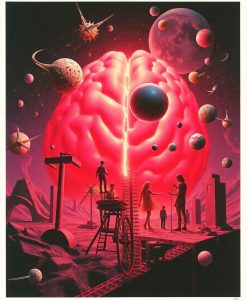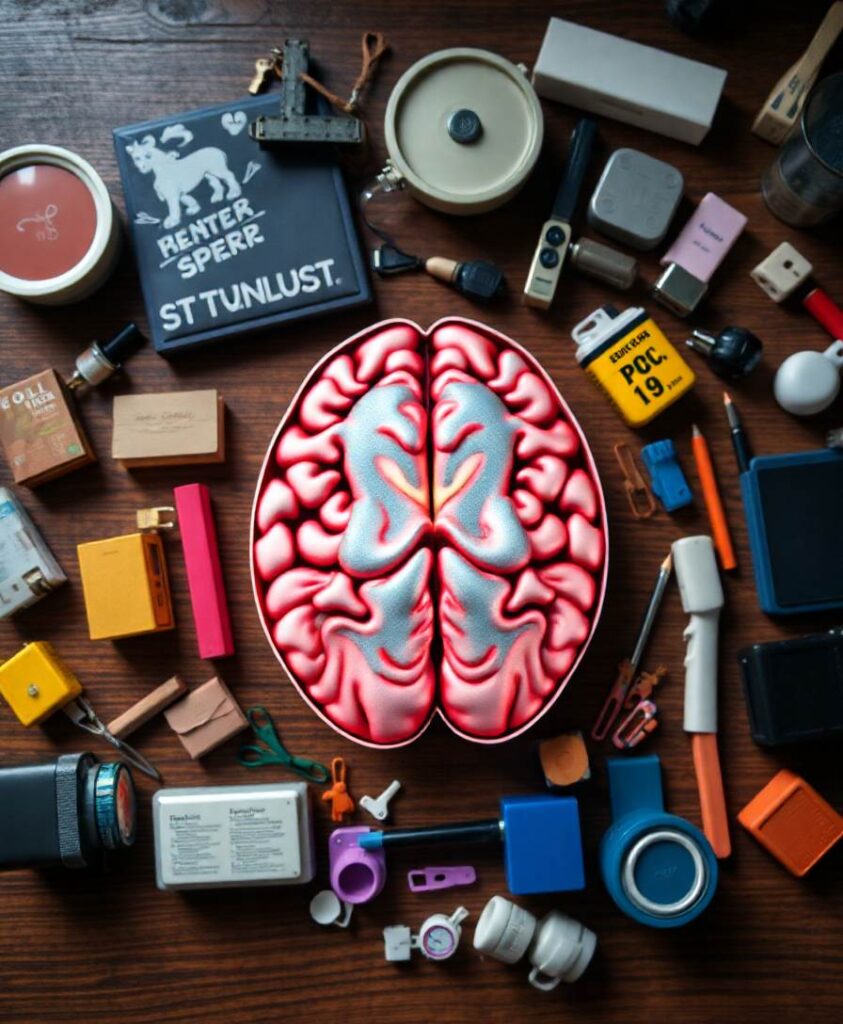As someone attuned to the whispers of the body, you might notice that your mood, energy levels, and even memory can shift subtly throughout your cycle. Perhaps on certain days, your brain feels sharper, your focus more acute, and your ability to recall details seems heightened. On other days, those mental edges soften, and your mind feels a bit foggier. These fluctuations are not just in your head—they are intimately connected to the rhythmic dance of hormones coursing through your body, especially in women.
Every month, as ovarian hormones such as estrogen and progesterone ebb and flow, they send signals that extend beyond the reproductive system, reaching deep into the brain’s core regions responsible for memory and spatial understanding. Recent advances in laser microscopy have allowed scientists to observe how these hormonal tides reshape the very architecture of neurons within the hippocampus—the brain’s primary site for forming new memories and navigating space.
Understanding the subtle dance of hormones and memory in the brain
Imagine your brain as a bustling city, with the hippocampus acting as the central library and navigation hub. During certain times of your cycle, when estrogen levels peak, this city becomes more active, with neurons extending new branches, forming fresh connections, and becoming more responsive. Conversely, when hormone levels dip, these neural structures contract slightly, leading to changes in how effectively your brain processes memories or spatial cues.
Research using cutting-edge laser microscopy in mice has shown that these hormone fluctuations during their estrous cycle—a four-day cycle similar to the human menstrual cycle—significantly influence the shape and behavior of hippocampal neurons. Just as the tide rises and falls, the structure of these neurons adapts in response to hormonal shifts, impacting how memories are formed, stored, and retrieved.
Many women notice that their memory and focus seem to change across their cycle, and now science is illuminating the biological underpinnings of these experiences. The dynamic remodeling of hippocampal neurons offers a biological explanation for why some days feel mentally brighter and others more foggy—it’s all part of a natural, rhythmic process of brain plasticity driven by hormonal ebb and flow.
What this means for understanding women’s brain health

Recognizing that hormone cycles shape the structure and function of key memory regions in the brain invites a more compassionate view of cognitive variability. Instead of viewing forgetfulness or mental fatigue as flaws, understanding their roots in natural hormonal rhythms can foster patience and self-awareness. For those experiencing significant shifts in memory or focus, this research underscores the importance of considering hormonal influences when seeking solutions or strategies to support mental clarity.
Furthermore, these insights open doors to personalized approaches in managing cognitive health, especially for women navigating hormonal changes during different life stages, such as menopause or hormonal therapy. Knowing that the brain’s memory regions are dynamically responsive to hormonal fluctuations can inspire new avenues for nurturing mental well-being aligned with our natural rhythms.
At its core, this research reminds us that our brains are not static but living, breathing landscapes constantly shaped by the invisible tides of hormones. Embracing this understanding can deepen our appreciation for the intricate, beautifully orchestrated symphony of mind and body, moving us toward healthier, more harmonious living.
Learn More: Hormone cycles shape the structure and function of key memory regions in the brain
Abstract: Hormone levels fluctuate like the tides, ebbing and flowing according to carefully orchestrated cycles. These hormones not only influence the body, but can cross into the brain and shape the behavior of our neurons and cognitive processes. Recently, researchers used modern laser microscopy techniques to observe how fluctuations in ovarian hormones shape both the structure and function of neurons in the mouse hippocampus, a brain region crucial for memory formation and spatial learning in mammals. They found that hormone fluctuations during the mouse estrous cycle, a 4-day cycle analogous to the 28-day human menstrual cycle, powerfully influence the shape and behavior of hippocampal neurons.
Link: https://www.sciencedaily.com/releases/2025/05/250513150241.htm


